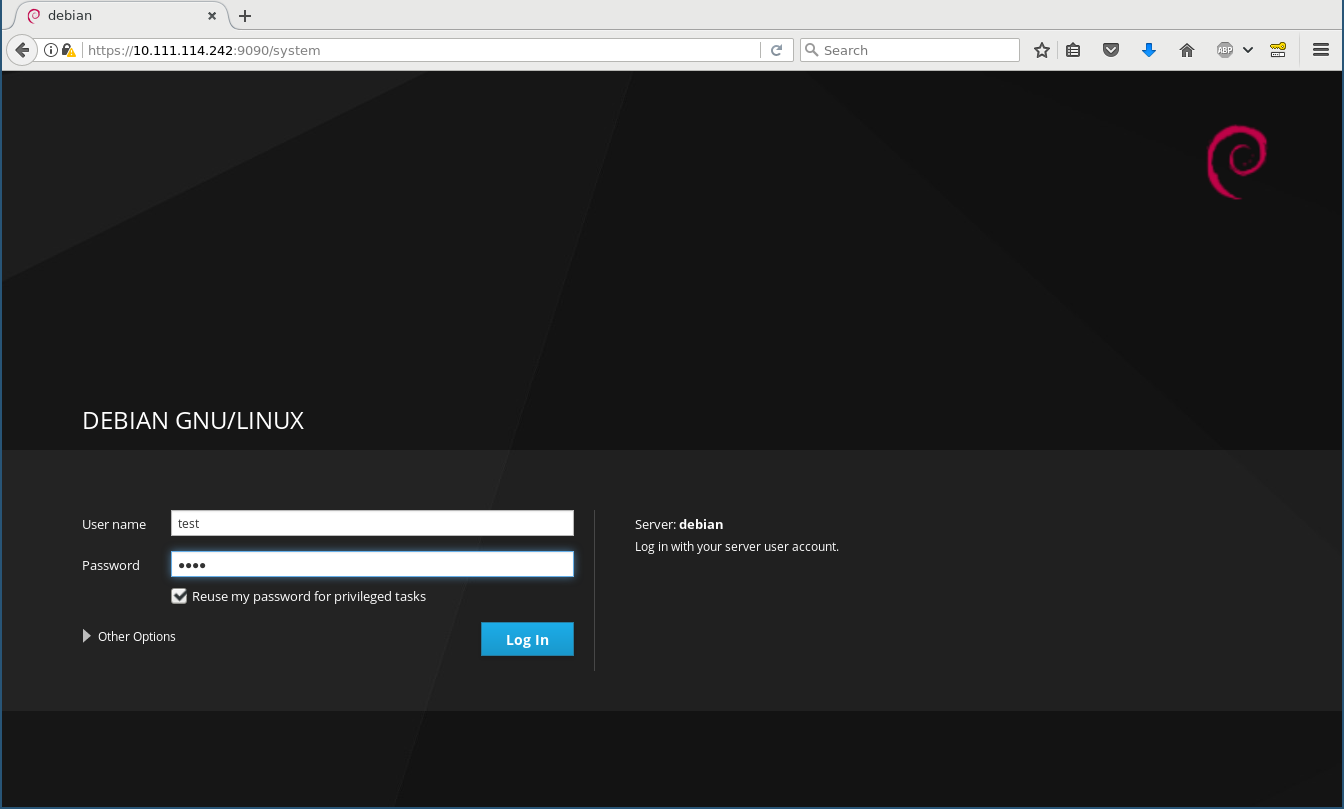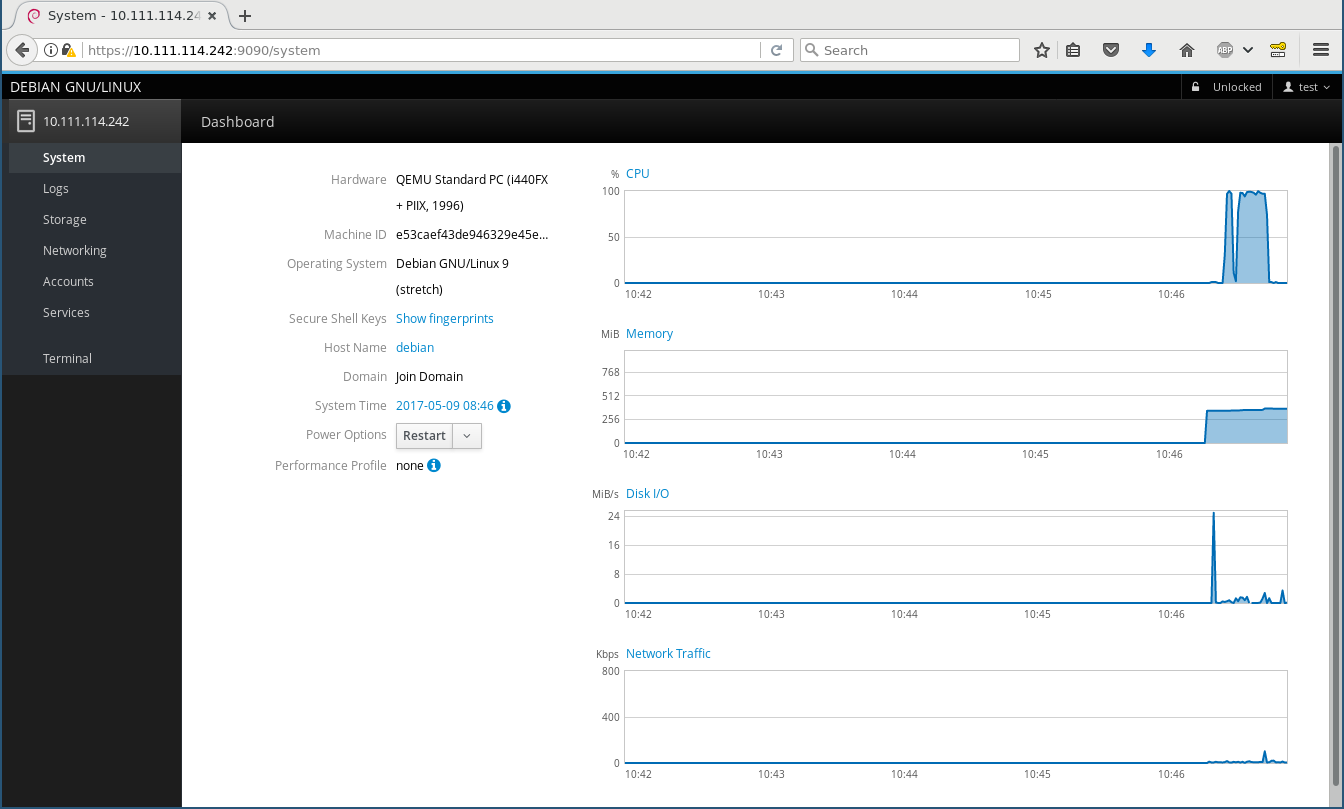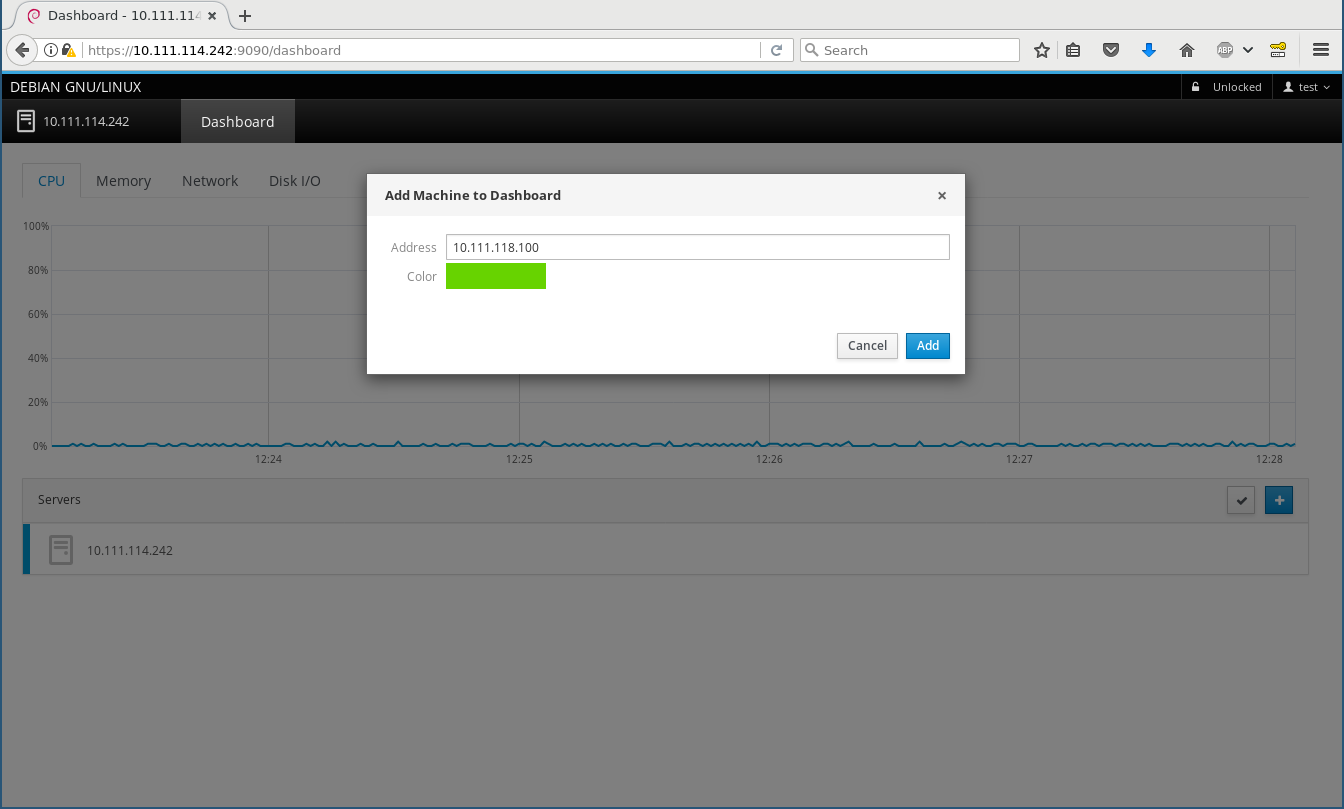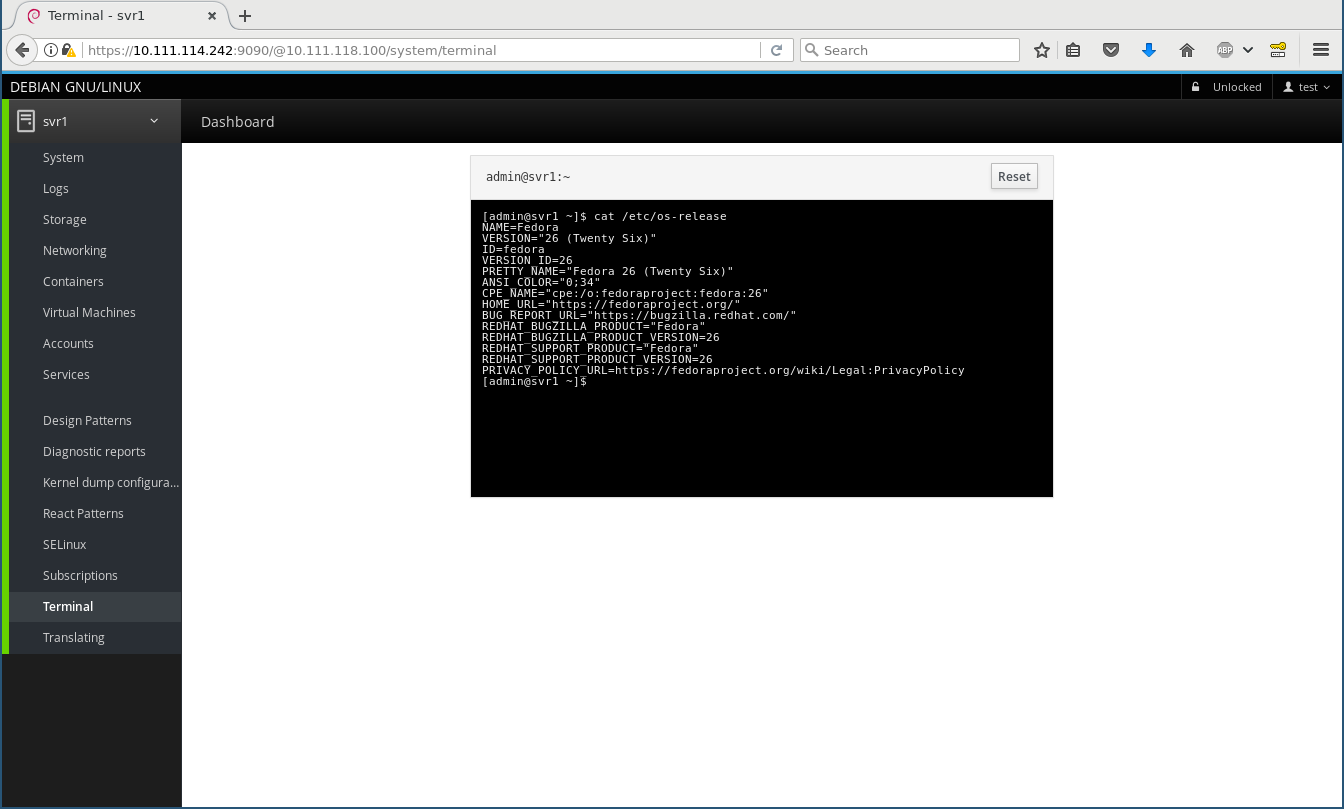
The last two major autopkgtest releases (3.18 from November, and 3.19 fresh from yesterday) bring some new features that are worth spreading.
New LXD virtualization backend
3.19 debuts the new
adt-virt-lxd virtualization backend. In case you missed it,
LXD is an API/CLI layer on top of LXC which introduces proper image management, seamlessly use images and containers on remote locations, intelligently caching them locally, automatically configure performant storage backends like zfs or btrfs, and just generally feels really clean and much simpler to use than the classic LXC.
Setting it up is not complicated at all. Install the
lxd package (possibly from the
backports PPA if you are on 14.04 LTS), and add your user to the
lxd group. Then you can add the standard LXD image server with
lxc remote add lco https://images.linuxcontainers.org:8443
and use the image to run e. g. the libpng test from the archive:
adt-run libpng --- lxd lco:ubuntu/trusty/i386
adt-run libpng --- lxd lco:debian/sid/amd64
The
adt-virt-lxd.1 manpage explains this in more detail, also how to use this to run tests in a container on a remote host (how cool is that!), and how to build local images with the usual autopkgtest customizations/optimizations using
adt-build-lxd.
I have btrfs running on my laptop, and LXD/autopkgtest automatically use that, so the performance really rocks. Kudos to St phane, Serge, Tycho, and the other LXD authors!
The motivation for writing this was to make it possible to move our armhf testing into the cloud (which for $REASONS requires remote containers), but I now have a feeling that soon this will completely replace the existing
adt-virt-lxc virt backend, as its much nicer to use.
It is covered by the same regression tests as the LXC runner, and from the perspective of package tests that you run in it it should behave very similar to LXC. The one problem I m aware of is that
autopkgtest-reboot-prepare is broken, but hardly anything is using that yet. This is a bit complicated to fix, but I expect it will be in the next few weeks.
MaaS setup script
While most tests are not particularly sensitive about which kind of hardware/platform they run on, low-level software like the Linux kernel, GL libraries, X.org drivers, or Mir very much are. There is a
plan for extending our automatic tests to real hardware for these packages, and being able to run autopkgtests on real iron is one important piece of that puzzle.
MaaS (Metal as a Service) provides just that it manages a set of machines and provides an API for installing, talking to, and releasing them. The new
maas autopkgtest ssh setup script (for the
adt-virt-ssh backend) brings together autopkgtest and real hardware. Once you have a MaaS setup, get your API key from the web UI, then you can run a test like this:
adt-run libpng --- ssh -s maas -- \
--acquire "arch=amd64 tags=touchscreen" -r wily \
http://my.maas.server/MAAS 123DEADBEEF:APIkey
The required arguments are the MaaS URL and the API key. Without any further options you will get any available machine installed with the default release. But usually you want to select a particular one by architecture and/or tags, and install a particular distro release, which you can do with the
-r/--release and
--acquire options.
Note that this is not wired into Ubuntu s production CI environment, but it will be.
Selectively using packages from -proposed
Up until a few weeks ago, autopkgtest runs in the CI environment were always seeing/using the entirety of
-proposed. This often led to lockups where an application
foo and one of its dependencies
libbar got a new version in -proposed at the same time, and on test regressions it was not clear at all whose fault it was. This often led to perfectly good packages being stuck in -proposed for a long time, and a lot of manual investigation about root causes.
.
These days we are using a more fine-grained approach:
A test run is now specific for a trigger , that is, the new package in -proposed (e. g. a new version of libbar) that caused the test (e. g. for foo ) to run. autopkgtest sets up apt pinning so that only the binary packages for the trigger come from -proposed, the rest from -release. This provides much better isolation between the mush of often hundreds of packages that get synced or uploaded every day.
This new behaviour is controlled by an extension of the
--apt-pocket option. So you can say
adt-run --apt-pocket=proposed=src:foo,libbar1,libbar-data ...
and then only the binaries from the
foo source,
libbar1, and
libbar-data will come from -proposed, everything else from -release.
Caveat:Unfortunately apt s pinning is rather limited. As soon as any of the explicitly listed packages depends on a package or version that is only available in -proposed, apt falls over and refuses the installation instead of taking the required dependencies from -proposed as well. In that case, adt-run falls back to the previous behaviour of using no pinning at all. (This unfortunately got worse with apt 1.1, bug report to be done). But it s still helpful in many cases that don t involve library transitions or other package sets that need to land in lockstep.
Unified testbed setup script
There is a number of changes that need to be made to testbeds so that tests can run with maximum performance (like running dpkg through
eatmydata, disabling apt translations, or automatically using the host s apt-cacher-ng), reliable apt sources, and in a minimal environment (to detect missing dependencies and avoid interference from unrelated services these days the standard cloud images have a lot of unnecessary fat). There is also a choice whether to apply these only once (every day) to an autopkgtest specific base image, or on the fly to the current ephemeral testbed for every test run (via
--setup-commands). Over time this led to quite a lot of code duplication between
adt-setup-vm,
adt-build-lxc, the new
adt-build-lxd,
cloud-vm-setup, and
create-nova-image-new-release.
I now cleaned this up, and there is now just a single
setup-commands/setup-testbed script which works for all kinds of testbeds (LXC, LXD, QEMU images, cloud instances) and both for preparing an image with
adt-buildvm-ubuntu-cloud,
adt-build-lx[cd] or nova, and with preparing just the current ephemeral testbed via
--setup-commands.
While this is mostly an internal refactorization, it does impact users who previously used the
adt-setup-vm script for e. g. building Debian images with
vmdebootstrap. This script is now gone, and the generic
setup-testbed entirely replaces it.
Misc
Aside from the above, every new version has a handful of bug fixes and minor improvements, see the
git log for details. As always, if you are interested in helping out or contributing a new feature, don t hesitate to contact me or
file a bug report.
 Thanks to the cooperation with upstream authors and the maintainer Martin Pitt, the Calibre package in Debian is now up-to-date at version 3.4.0, and has adopted a more standard packaging following upstream. In particular, all the desktop files and man pages have been replaced by what is shipped by Calibre. What remains to be done is work on RAR support.
Thanks to the cooperation with upstream authors and the maintainer Martin Pitt, the Calibre package in Debian is now up-to-date at version 3.4.0, and has adopted a more standard packaging following upstream. In particular, all the desktop files and man pages have been replaced by what is shipped by Calibre. What remains to be done is work on RAR support. Rar support is necessary in the case that the eBook uses rar as compression, which happens quite often in comic books (cbr extension). Calibre 3 has split out rar support into a dynamically loaded module, so what needs to be done is packaging it. I have prepared a package for the Python library unrardll which allows Calibre to read rar-compressed ebooks, but it depends on the unrar shared library, which unfortunately is not built in Debian. I have sent a patch to fix this to the maintainer, see bug
Rar support is necessary in the case that the eBook uses rar as compression, which happens quite often in comic books (cbr extension). Calibre 3 has split out rar support into a dynamically loaded module, so what needs to be done is packaging it. I have prepared a package for the Python library unrardll which allows Calibre to read rar-compressed ebooks, but it depends on the unrar shared library, which unfortunately is not built in Debian. I have sent a patch to fix this to the maintainer, see bug 




 Martin Pitt won the popular vote.
Martin Pitt won the popular vote.

 At
At 
 My monthly report covers a large part of what I have been doing in the free software world. I write it for
My monthly report covers a large part of what I have been doing in the free software world. I write it for  The Debian Handbook
I worked with Ryuunosuke Ayanokouzi to prepare a paperback version of the Japanese translation of my book. Thanks to the efforts of everybody,
The Debian Handbook
I worked with Ryuunosuke Ayanokouzi to prepare a paperback version of the Japanese translation of my book. Thanks to the efforts of everybody,  What happened in the
What happened in the 
 Package reviews
103
Package reviews
103  Martin Pitt reported Debian
Martin Pitt reported Debian